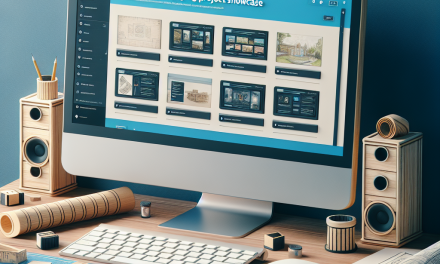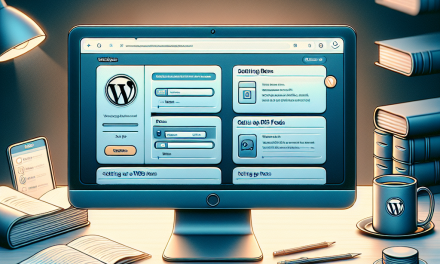Podcasting has surged in popularity, becoming a vital medium for sharing knowledge, stories, and entertainment. For content creators, organizing podcast episodes efficiently can enhance user experience and improve discoverability. In this article, we’ll explore best practices for organizing your podcast episodes in WordPress, ensuring that your audience can easily find and engage with your content.
1. Utilize a Podcasting Plugin
The foundation of organizing your podcast episodes in WordPress is a reliable podcasting plugin. Plugins like Seriously Simple Podcasting and PowerPress Podcasting not only help you upload and manage episodes but also generate an RSS feed for syndication.
- Seriously Simple Podcasting: This user-friendly plugin offers customizable settings and supports multiple shows.
- PowerPress Podcasting: A feature-rich option that provides advanced features such as episode categorization and mobile-friendly designs.
For more details about these plugins, you can check their respective pages on the WordPress Plugin Repository.
2. Create a Dedicated Podcast Page
Your podcast deserves its own dedicated page. By creating a separate podcast section on your WordPress site, you can showcase all episodes, provide descriptions, and include a subscription button. This page can be optimized for SEO by using relevant keywords related to your podcast.
How to Create a Podcast Page:
- Go to Pages in your WordPress dashboard.
- Click on Add New.
- Title the page (e.g., "Podcast Episodes").
- Use a shortcode or block provided by your podcasting plugin to display episodes.
- Publish the page and link it to your main navigation menu.
3. Implement Categories and Tags
Organizing episodes by categories and tags helps listeners find content quickly. If you have a variety of topics, it’s best to categorize episodes accordingly. For instance, if your podcast covers technology, interviews, and tutorials, use those as categories.
- Categories: Broad topics that cover general themes across various episodes.
- Tags: More specific keywords that relate to individual episodes’ content.
4. Optimize Episode Titles and Descriptions
Each episode title should be descriptive and engaging, providing listeners with a clear idea of the content. Pair this with a detailed description that includes relevant keywords to improve searchability.
Tips for Writing Episode Descriptions:
- Keep it concise but informative.
- Include timestamps for different segments (if applicable).
- Add links to resources mentioned in the episode.
- Encourage user engagement by asking listeners to leave comments.
5. Integrate Social Sharing Options
Make it easy for your audience to share episodes on social media. Most podcasting plugins include social sharing options, or you can use plugins like AddToAny or ShareThis to facilitate sharing.
6. Utilize Episode Artwork and Multimedia
Each episode should have associated artwork. This not only creates a professional look but enhances engagement. Make use of multimedia elements such as audiograms, images, and transcripts to complement audio content.
Finding Visuals:
- Use Canva for creating eye-catching episode artwork.
- Check out stock photo websites like Unsplash for relevant images.
7. Create a Subscription Option
Encourage your audience to subscribe to your podcast. Your podcast page should feature subscription links for platforms like Apple Podcasts, Spotify, and Google Podcasts. Tools like Podigee can help in creating these links seamlessly.
Conclusion
By applying these best practices, you can effectively organize your podcast episodes in WordPress, offering your audience a seamless and enjoyable experience. Whether you are just starting or looking to revamp your existing podcast, optimizing your WordPress site can make a substantial difference.
Call to Action
For those who want to elevate their podcasting experience, consider WafaTech NextGen WordPress Hosting. Offering robust features and top-tier support, WafaTech provides the ideal environment for your podcasting endeavors. For more details, visit WafaTech WordPress Hosting.
Explore the power of WordPress with the right tools, and take your podcast to the next level today! For additional resources and documentation about WordPress, visit the official WordPress documentation.
Feel free to use or modify this article for your blog!





